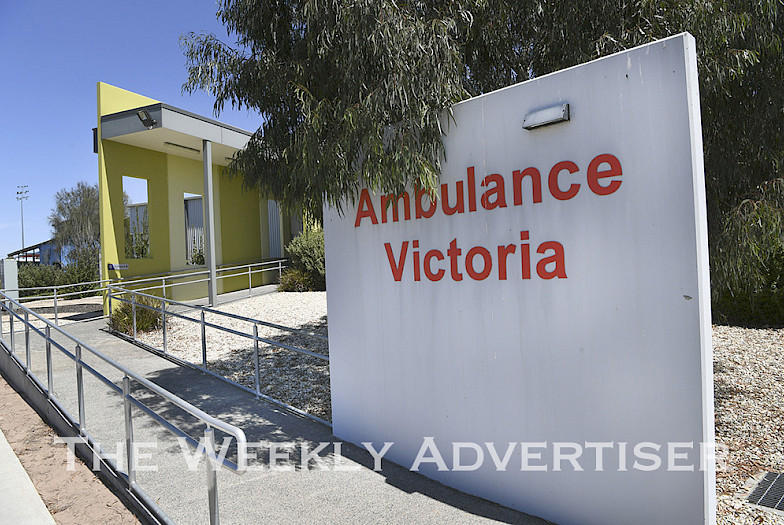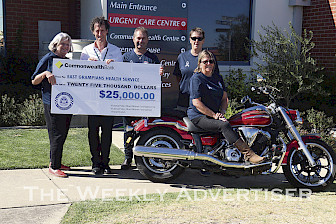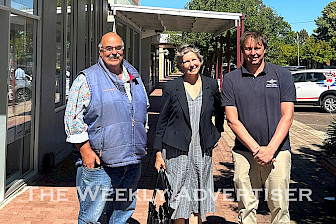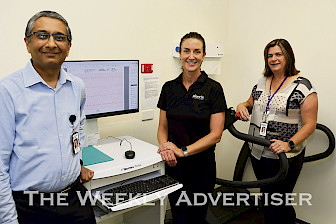“That’s crews who are destined to finish their shift at say five o’clock, who are caught on a job. They might be dispatched 20 minutes before the end of their shift to a job that’s 50 kilometres away and they’re not finishing on time.
“And we don’t have a choice. You’re forced to do that. And even if you’re after your finish time and you’re on your way back to branch, you can still be dispatched to another job. There’s no protections.”
Mr Jacobs, a paramedic for 25 years, said crews understood that paramedics needed to work overtime at times.
“Nobody objects to those more serious jobs being caught because that’s what we’re here for,” he said.
“But our beef is around the ambulance triage system, which is very risk adverse and jobs that really don’t need a lights and sirens response are getting them, which means crews are then caught up doing overtime for excessive periods for things that really don’t warrant it.”
Mr Jacobs said the coding of jobs was a factor, as was policies and procedures about end-of-shift management.
“The reality is we have a limited amount of resourcing,” he said.
“And if we’re sending crews to less- urgent cases, then they’re not going to be available when the next job, which may be a sicker patient, comes in.”
Making sacrifices
Mr Jacobs said it was as if paramedics were being asked to choose between their jobs and their families.
“We have crews that have, and it might sound trivial, but it’s a cumulative thing, missed out on birthdays or dinners with partners or whatever it be because they’re caught at work,” he said.
“One of the frustrating things I find is Ambulance Victoria talks about being a family-friendly organisation, and it’s all about work-life balance.
“But the reality for the guys on the ground is that’s not the case. People are making big sacrifices.
“We have a number of young staff here at Horsham who are into their local sports, but it’s very difficult for them to commit to anything outside of work because they just never know what time they are going to finish.”
Mr Jacobs said a lot of the problems were also due to ramping at hospitals.
“Hospitals are underfunded and under-resourced. The local crews work really well with the Wimmera-based hospital staff, but the reality is their hands are tied,” he said.
“So we have crews waiting one, two hours at times at hospital. And that, again, takes resources off the road.”
Paramedics are now taking industrial action, including members speaking with the media, campaign messages on ambulance vehicles, not collecting billing details, and crews that are ramped at hospitals for greater than 40 minutes activating their beacons.
“We have the ability or an option of going on strike, but nobody wants to do that,” he said.
“Obviously, it’s there as an option, but we’re trying to look at other industrial actions that put pressure on the government to negotiate with us rather than anything that’s going to adversely affect the public.” A recent survey of Victorian Ambulance Union members identified that one in five paramedics were looking at leaving the job in the next year – on top of a workforce where more than half of paramedics have been in the job for less than five years.
Victorian Ambulance Union secretary Danny Hill said it was disappointing the EBA negotiations had been going for more than a year now without an outcome.
“This EBA is about making the job more survivable with better work-life balance, reasonable workload, and getting home to family on time. Without that we will continue to lose the experienced workforce,” he said.
“While we have made ground in some areas, most of the workforce is only being offered a three percent increase to wages and little change to working conditions.
“Ambos are dedicated to saving lives, but they deserve to have a life, too.”
The entire April 10, 2024 edition of The Weekly Advertiser is available online. READ IT HERE!






